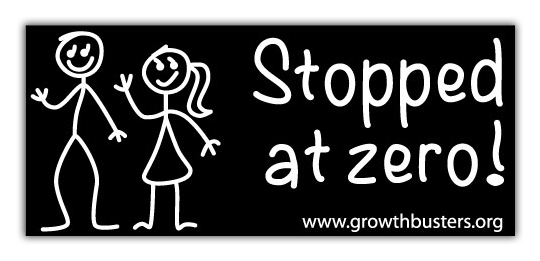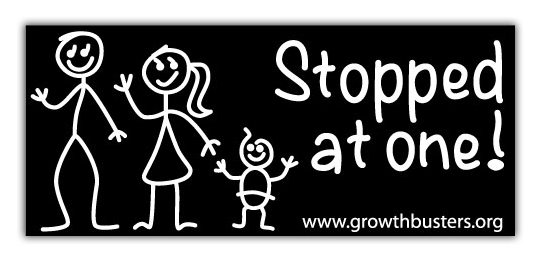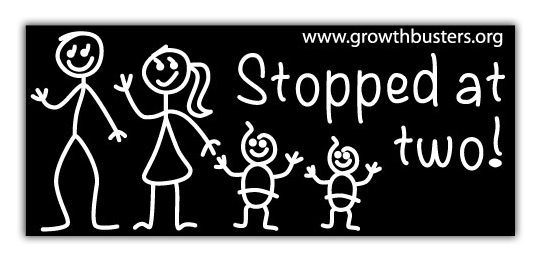
Chickens are Coming Home to Roost
 While nary a week goes by that we don’t get a new report of the destruction we’re wreaking on our home planet, the news has been particularly bad over the last few weeks. Plus: Bill Maher, usually praised by us for speaking the truth, needs to get there on the benefits of a shrinking economy. We devote half of this episode to the news, and half to our swelling file of listener feedback.
While nary a week goes by that we don’t get a new report of the destruction we’re wreaking on our home planet, the news has been particularly bad over the last few weeks. Plus: Bill Maher, usually praised by us for speaking the truth, needs to get there on the benefits of a shrinking economy. We devote half of this episode to the news, and half to our swelling file of listener feedback.
MENTIONED IN THIS EPISODE:
Population Decline is Part of the Solution – YouTube video (by GrowthBusters)
Paul Ehrlich, Unfiltered – Episode 68 of the GrowthBusters podcast
8 Billion Angels – documentary produced by Terry Spahr
Can Living a 1.5 Degree Lifestyle Make a Difference? – Episode 66 of the GrowthBusters podcast, with Lloyd Alter
Obsessive-Compulsive’s Guide to Cutting Your Carbon Footprint – Episode 67 of the GrowthBusters podcast, with Lloyd Alter
This Sustainable Life podcast with Josh Spodek
7th Generation Initiative / Sustainability Project (Mike Nickerson)
Life, Money & Illusion: Living on Earth as If We Want to Stay – by Mike Nickerson
More Fun, Less Stuff– Episode 55 of the GrowthBusters podcast, with Mike Nickerson
Al Bartlett’s Laws Relating to Sustainability
Where Lawns Are Outlawed (and Dug Up, and Carted Away)
As Climate Fears Mount, Some in U.S. Are Deciding to Relocate
Chronic Land Degradation: UN Offers Stark Warnings and Practical Remedies in Global Land Outlook 2
Humanity Entering ‘Spiral of Self-Destruction’, UN Warns
Latest IPCC Report Skips Population Growth in Summary for Policymakers, but Highlights it in Full Report and Technical Summary
Give Us Feedback:
- Record a voice message for us to play on the podcast: +1-719-402-1400
- Send an email to podcast at growthbusters.org
The GrowthBusters theme song was written and produced by Jake Fader and sung by Carlos Jones.
On the GrowthBusters podcast, we come to terms with the limits to growth, explore the joy of sustainable living, and provide a recovery program from our society’s growth addiction (economic/consumption and population). This podcast is part of the GrowthBusters project to raise awareness of overshoot and end our culture’s obsession with, and pursuit of, growth.
Dave Gardner directed the documentary GrowthBusters: Hooked on Growth, which Stanford Biologist Paul Ehrlich declared “could be the most important film ever made.” Co-host Stephanie Gardner has degrees in Environmental Studies and Environmental Law & Policy.
Join the conversation on Facebook
Make a donation to support this non-profit project.
Archive of all episodes of the GrowthBusters podcast
Subscribe to GrowthBusters email updates
See the film – GrowthBusters: Hooked on Growth – Now Free on YouTube
Explore the issues at www.growthbusters.org
View the GrowthBusters channel on YouTube
Follow on your podcast app so you don’t miss an episode:



Tags: Climate Change, economic growth, family planning, footprint, overconsumption, overpopulation, overshoot, Paul Ehrlich, population growth, public policy, sustainability, urban growth
Trackback from your site.





Simon Cole
| #
At 05:25, Stephanie says the global footprint of people in the U.S.A. is 1.8… she means it’s 8.1.
Data from data from https://data.footprintnetwork.org/?_ga=2.215285911.1002390293.1652341424-1727669520.1652341424#/
Reply
Dave Gardner
| #
Thanks so much for catching this, Simon. Stephanie definitely meant to say 8.1. I’ve edited the audio to correct that error, as it will otherwise confuse many listeners.
Reply
Simon Cole
| #
Okay another comment now that I’m at the END of the episode! Great spread of information and feedback, thanks Dave and Steph.
I’ve been widening my circle of friends lately and sadly I have to say – and I don’t want to discourage you from imploring people to do their little bit to help save the planet – most people don’t take personal responsibility. I think they’ll only change their consumption patterns when they’re forced to.
Terry Spahr’s point about Steph’s savings from reduced consumption not making a difference if it is simply redirected to another form of consumption emphasizes the need to reduce our budget. But for Steph, if she doesn’t have a mortgage-free roof over her head yet, THAT is the thing to save up for (in an ethical bank or bullion or something benign). Once she’s got that, THEN she can reduce her income (work hours) and her overall participation in the detrimental economy. But do it by avoiding debt because savings have the potential to hybernate a part of the economy and monetary system. Debt stimulates it. Correct me if I’m wrong. Cheers.
Reply